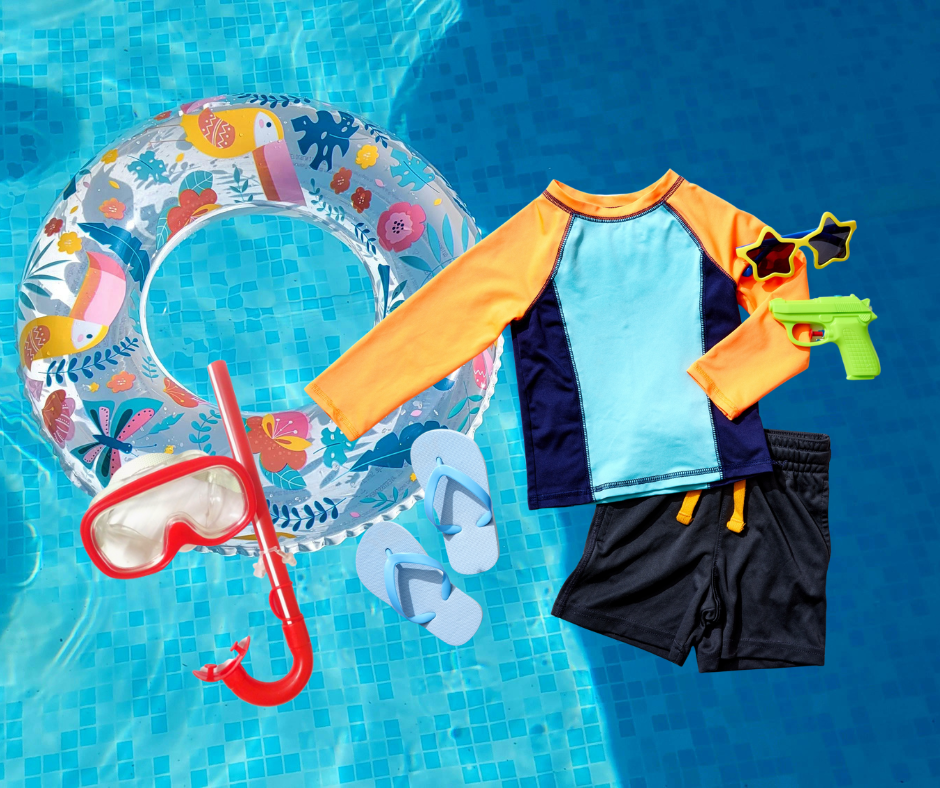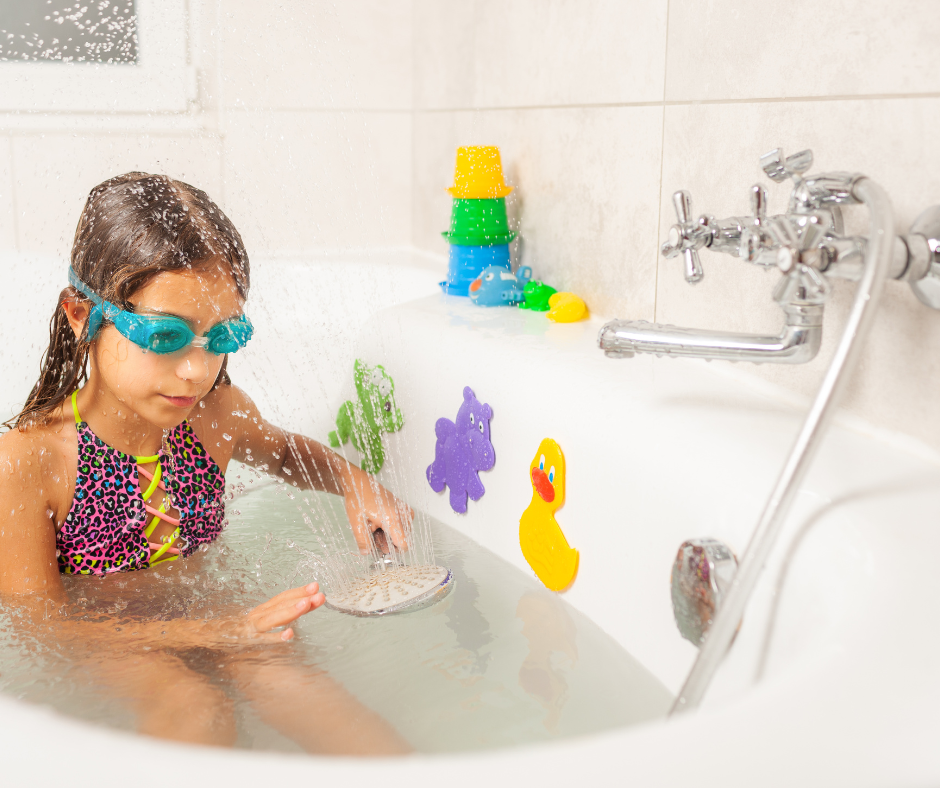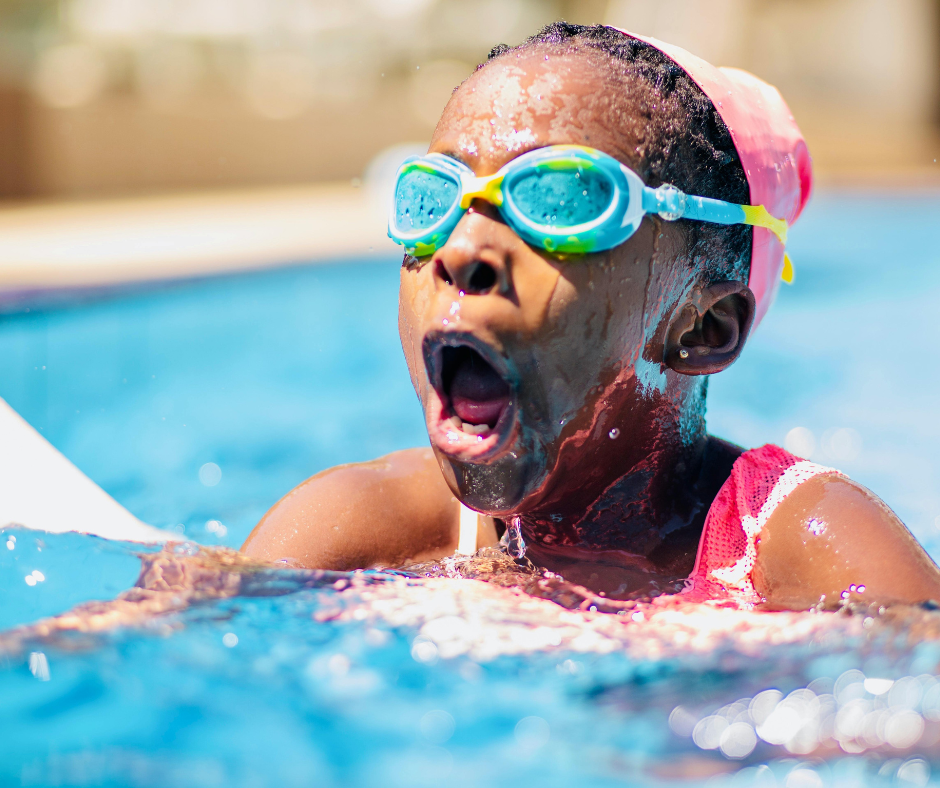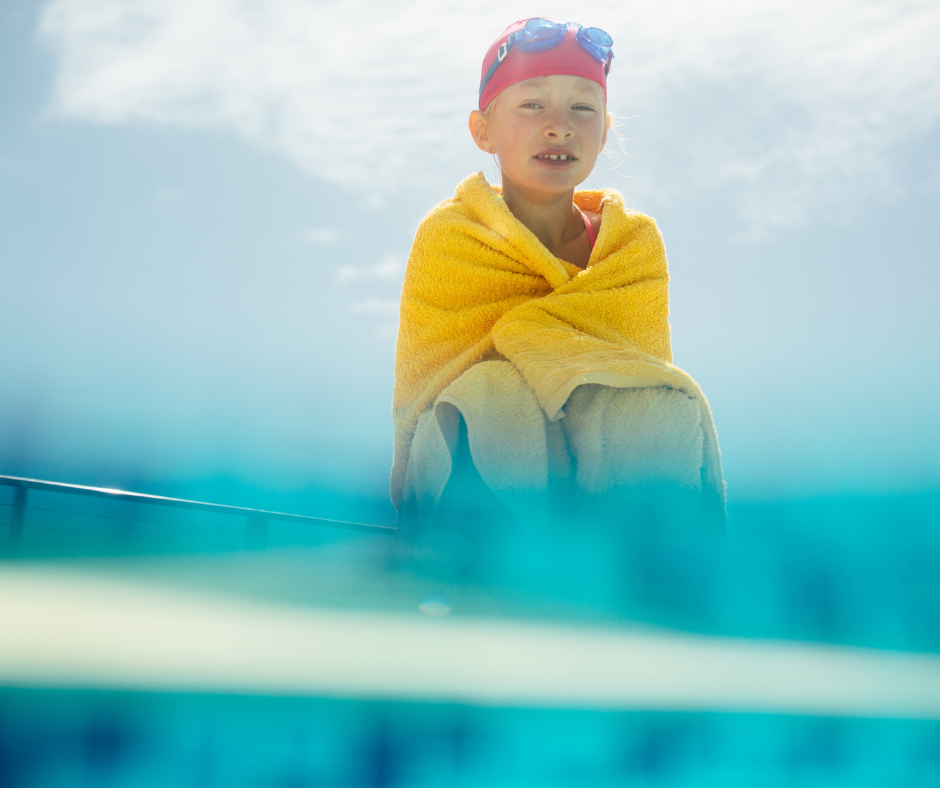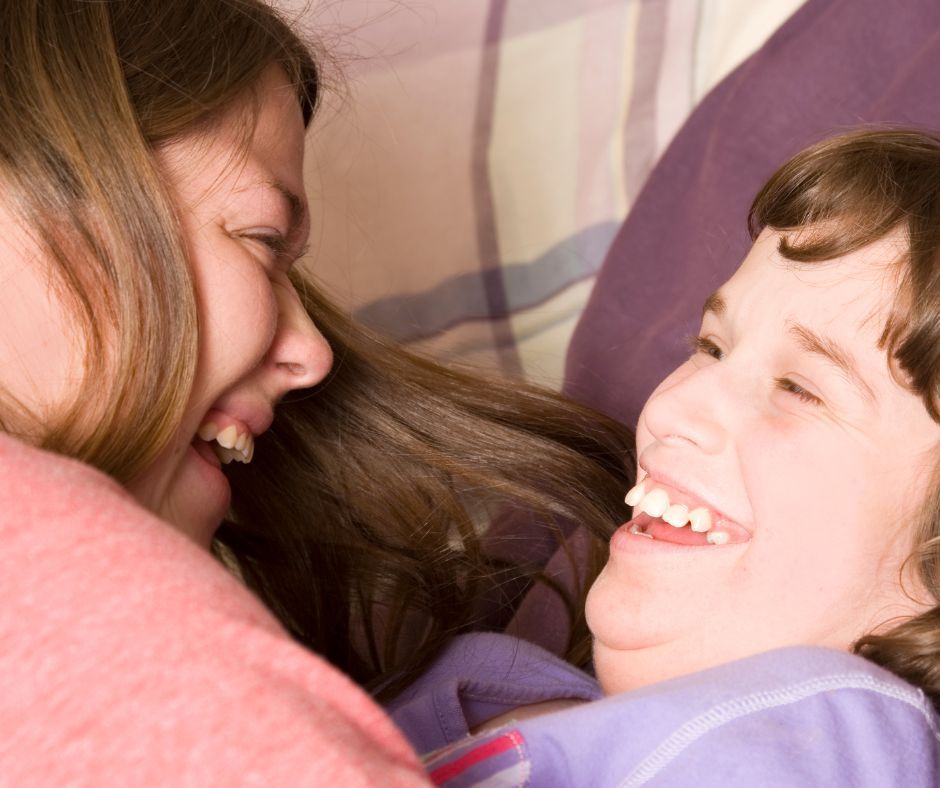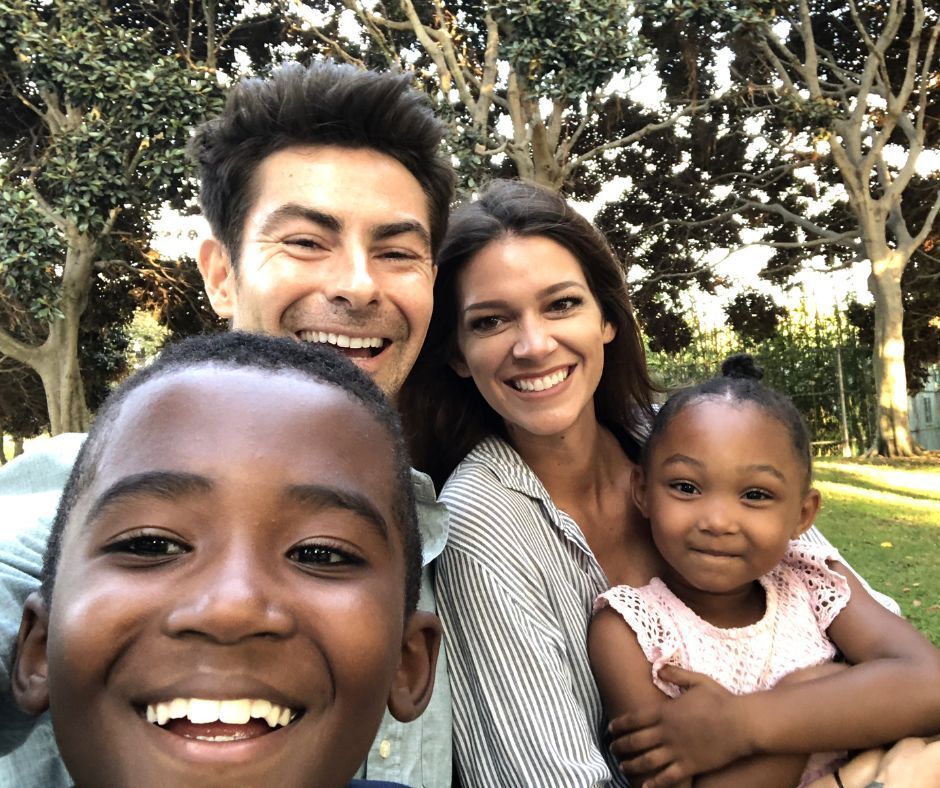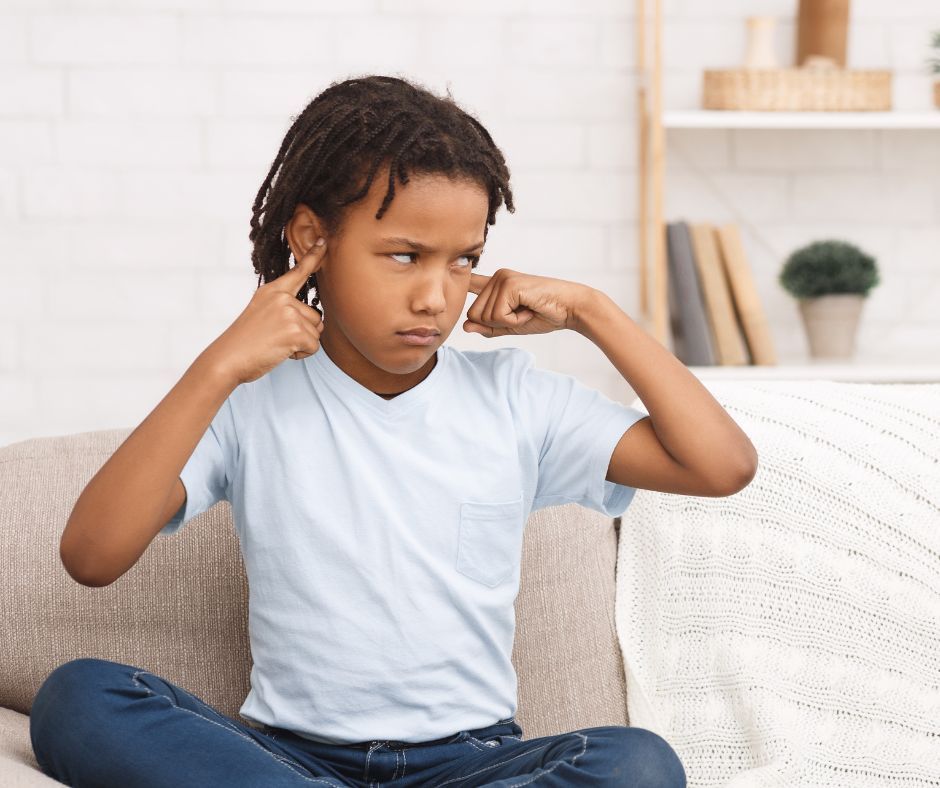1. Start With the Right Swimwear
For sensory kids, clothing matters—a lot. Swimsuits can be especially challenging: they’re often tight, made of unfamiliar materials, and filled with tags, seams, or waistbands that irritate sensitive skin. Let kids swim in whatever they are comfortable swimming in.
Let your child try on different suits at home well before swim day. Look for soft materials, tagless options, and styles that don’t ride up or bind. Rash guards can be helpful if your child is sensitive to sun or skin exposure. And if your child wants to wear something unconventional—like socks or long sleeves in the water—go with it. Comfort leads to confidence.
True story: My son refused socks all year—but in water? Long, knee-high socks were his non-negotiable swim gear for the pool, lake, and creek. And you know what? It worked. He was comfortable, confident, and happy. That’s the goal.
2. Swim Supplies (Goggles and Ear plugs)
Not because they keep water out perfectly (spoiler: they don’t). But because your child thinks they will. That perceived control is incredibly regulating.
So if your child wants goggles, a swim cap, or earplugs—even if it seems unnecessary—go for it. It’s not about the gear. It’s about giving them a sense of power and predictability.

